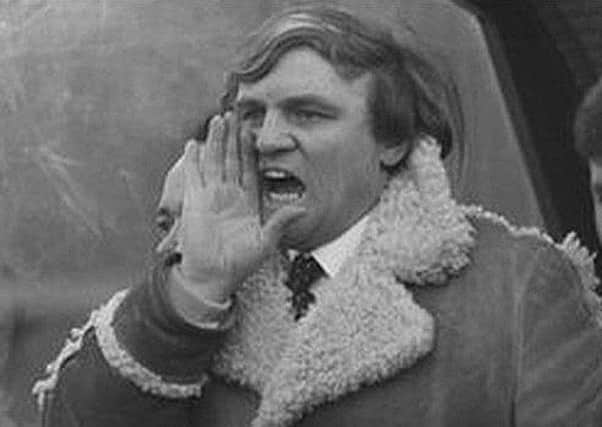Dementia concerns: footballer’s son backs ‘industrial injury’ call


Sinclair, 74, played for the Glens in the famous 1967 draw with Benfica – the Belfast side going out of the European Cup on the away goals rule.
As well as playing for Chelsea and a number of other sides, the Glasgow born midfielder also had a spell as manager of Glenavon.
He was diagnosed with dementia last year.
Advertisement
Hide AdAdvertisement
Hide AdSon Jonathan has said diseases such as Alzheimer’s in ex-players should be deemed industrial injuries.
Research has shown that former footballer’s are three-and-a-half times more likely to die from a degenerative brain disease.
Speaking on BBC Radio’s Good Morning Ulster programme, Jonathan said he was backing calls for the fresh approach.
“My dad was always the life and soul,” he said.
“He was a larger-than-life player, full of anecdotes and stories and always in the thick of things. My mother jokes that football was the first love of his life.”
Advertisement
Hide AdAdvertisement
Hide AdHowever, his family noticed a change in the ex-professional recently.
“The last year I’ve noticed how he steps back a lot from conversations even with me,” he said.
“He just listens to us.
“When my dad got the diagnosis, the consultant said to my mother that she felt my father’s playing career and heading the ball had a significant impact on him – she felt it was a major contributory factor,” Jonathan said.
He also said that his family was left “devastated” by the life-changing diagnosis, and firmly believes that many years of heading the ball played a role in his father developing the condition.
Advertisement
Hide AdAdvertisement
Hide Ad“What we have to remember is that back then, when these guys were playing to big crowds – 20,000 to 30,000 wasn’t unusual – they were not getting paid money like the professionals do today,” he said.
“They did it because they loved the game and they didn’t know the risks involved. In light of that, any support that they and their families get would be very welcome.”
In 2020, Sir Bobby Charlton became the fifth member of England’s 1966 World Cup-winning squad to be diagnosed with dementia. In February, former Scotland and Manchester United defender Gordon McQueen was diagnosed with vascular dementia.
The PFA has set up a taskforce to examine the issue.